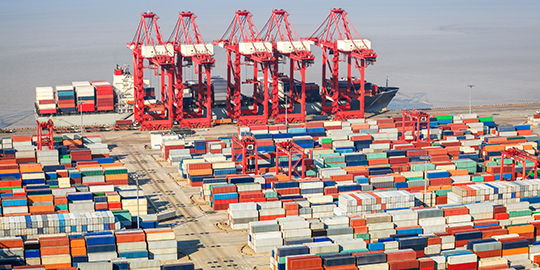
TPP pact likely to hit India’s foreign trade
Deepak Kumar | The Dollar Business
As the United States, Canada, Japan and nine Pacific Rim nations join the Trans-Pacific Partnership (TPP), Indian exports bodies have asked the government to expedite free trade agreements (FTAs) with various countries to balance the global trade. Earlier this month, 12 countries agreed to allow preferential trade between them under the Trans-Pacific Partnership framework. Though these countries are yet to ratify the agreement, the new trade bloc can become a challenge for India which aims to increase its goods and services exports to $900 billion by 2020. India already has free trade agreements with some of the TPP members. “To counter TPP, India will need to come up with an effective FTA (free trade agreements) regulation. FTA with the European Union has been going on for almost a decade; it needs to be concluded soon. India should also include other trading partners under FTA regulation. It will need to step up its trade with other Asian countries - including Myanmar, Thailand and Indonesia - it has FTAs with,” Delhi Exporters Association President Tilak Raj Manaktala told The Dollar Business. “Both India and China have been left out. Had China been a part of this group, things would have been worst for India’s exports,” Manaktala said. The TPP agreement embraces low tariffs, protection of intellectual property rights, labour standards, convergent safety standards and easy investment-related dispute settlement mechanism between members. Both India and China have been left out of the new trade bloc, which accounts for more than 40% of the global trade. Out of the 12 TPP signatories, India currently has FTAs with Japan, Malaysia, and Singapore, while talks are underway with Canada, New Zealand and Australia. Once the TPP is implemented, some of the key Indian exports, including textiles, clothing and services, are likely to be hit. The US accounts for about 30-35% of India's garments exports but with TPP in place, member countries will get preferential access to the US market. Other key products including grains, processed food and heavy manufacturing will also suffer as India will lose market access to the member countries. “America is the biggest market of Indian products. Once the TPP is implemented; it will cover at least 40% of world trade. The agreement is going to hit our manufacturing and small scale industries –responsible for India’s 15-20% exports - the most. It will also result in enormous job losses. By and large India is going to lose,” Manaktala said. The Confederation of Indian Industry (CII) urged the government to aggressively enter into as many FTAs as possible with textile markets of Asia and European Union to protect the Indian textile and apparel industry. The industry body also suggested that “India should take all possible steps to join the APEC forum, which accounts for nearly 60% of global GDP. This would provide a pathway for greater integration into the region’s economy.” “India had expressed plans earlier this year to join the APEC (Asia Pacific Economic Cooperation), but there has been little material progress since then,” Singapore-based DBS Group Research said. The TPP member countries are the US, Australia, Brunei, Canada, Chile, Japan, Malaysia, Mexico, New Zealand, Peru, Singapore, and Vietnam. “Besides pushing for FTAs and APEC, the government should promote exports from the very grass-root level. India’s exports have declined for the tenth straight month, and we have heard little from the government. TPP would affect all the industries, and the government will have to come up with fast scale schemes to revive exports,” S C Ralhan, President of the Federation of Indian Export Organisations (FIEO) told The Dollar Business.
October 17, 2015 | 4:53pm IST.






 to success.
to success.